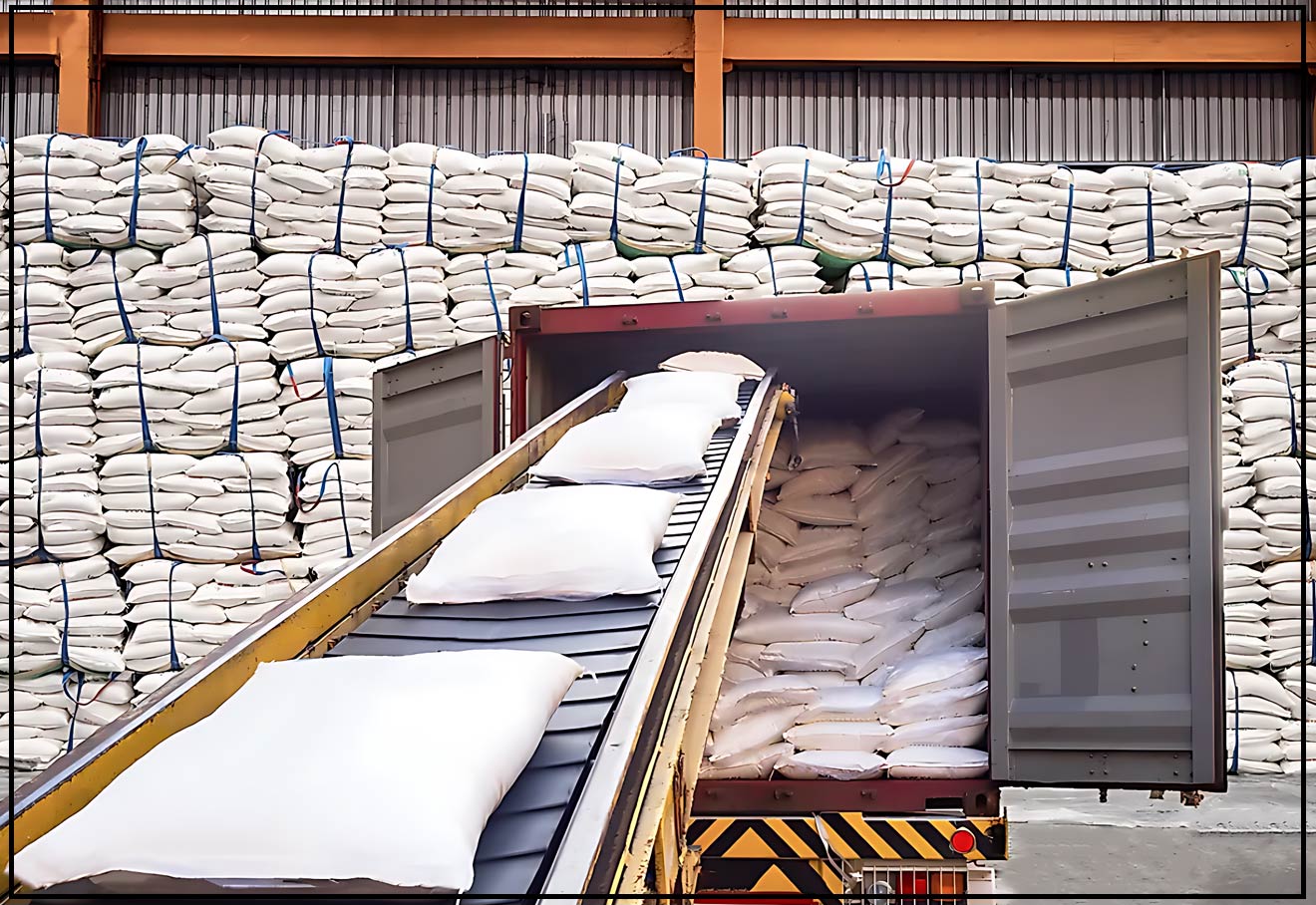Sugar for Fuel
November 11, 2023 | Expert Insights

Brazil and India stand at a crossroads of international trade as both look at a lucrative ethanol fuel future. Brazil, a dominant force in global sugar exports, and India, a rising star in both sugar and sugarcane production, stand to gain immensely if their efforts at the WTO come to fruition.
The crux of their negotiations lies in a potential exchange that could reshape their economic landscapes: Brazil's recent offer to share its cutting-edge ethanol production technology in return for India's concessions on world sugar trade.
Background
In the current status quo of the global markets, Brazil finds itself at the helm of sugar exports, seeking ways to alleviate market competition. India, the world's second-largest sugar and sugarcane exporter, has utilised export subsidies to bolster its domestic sugar and sugarcane industries. However, these subsidies have run afoul of the World Trade Organisation's (WTO) regulations, surpassing the set limit of 10 per cent of the real value of produce. India contests this ruling, citing nuanced legal interpretations. Yet, these subsidies enhance the competitiveness of Indian producers, encroaching on Brazil's share of the global sugar trade. Thus, Brazil stands to gain significantly if India concedes on its domestic support for sugar and sugarcane production.
Simultaneously, Brazil shines as a beacon in ethanol production, achieving a remarkable 25 per cent blending rate with conventional crude-oil-based fuel. A staggering 90 per cent of its drivers opt for flex-fuel vehicles, favouring economically viable ethanol blends. India, aspiring to reach 15 per cent blending rates by 2025, has championed the formation of the Global Biofuel Alliance (GBA) during its G20 Presidency Year. This initiative dovetails seamlessly into India's energy policy, which ardently advocates for enhancing domestic ethanol production. This strategic shift away from fossil fuels not only curtails importing costs in the short and medium terms but also aligns with India's ambitious goal of achieving net-zero emissions (NZE) by 2070.
Therefore, the prospect of conceding on the sugar trade to secure pivotal ethanol production technology becomes an enticing proposition for India. This symbiotic exchange could catapult India into the vanguard of clean energy production while bolstering Brazil's foothold in the global sugar market. Both nations have the opportunity to propel their economies forward, embracing a future that brings sustainable energy and economic development together.

Analysis
India’s agricultural practices have garnered attention and opposition from countries like Brazil, Australia, and Guatemala, who jointly contested India's alleged violations of WTO rules, specifically regarding excessive domestic support and export subsidies for sugar and sugarcane.
WTO’s dispute resolution panel has concluded India had indeed breached WTO regulations by offering non-exempt product-specific domestic support. Indian sugarcane producers enjoyed state subsidies that exceeded the permissible limit of 10 per cent of the total value of sugarcane production for a span of five consecutive sugar seasons, spanning from 2014-15 to 2018-19. This violation was identified as a clear inconsistency with India's obligations under Article 7.2(b) of the Agreement on Agriculture. Furthermore, the panel concluded that the schemes in question qualified as export subsidies under Article 9.1(a) of the Agreement on Agriculture. The WTO panel recommended that India must align its WTO-inconsistent measures with the stipulations outlined in the Agreement on Agriculture and the Subsidies and Countervailing Measures (SCM) Agreement.
The WTO Agreement on Agriculture promotes equitable competition and reduces distortions within the agricultural sector, covering market access, domestic support, export competition and subsidies. Additionally, the WTO's SCM Agreement addresses two interconnected topics: multilateral disciplines and countervailing duties.
India has the option of approaching the Appellate Body, but this is a lengthy and convoluted process. The U.S. has been consistently opposing the WTO's appeals process and, in frustration, has refused to appoint new Appellate Body judges. Consequently, most panel reports are in suspended animation with a void in the dispute settlement process. India has thus appealed the panel decision into an unresponsive void. Thus, any binding WTO decision will involve a long-drawn institutional process, which will first have to ascertain an Appellate Body. Therefore, any dispute - including this one - rests on political and diplomatic negotiations in the short term. Brazil and India are negotiating, given this reality.
The sugar cane industry is pivotal to Indian agricultural interests and provides a livelihood to millions of farmers, especially the marginalised ones. Production runs from October to April, yielding around 31 million metric tons as of statistics derived during the 2020-21 season. A growing population and demand in sectors like food, confectionery, and pharmaceuticals are engendering a rise in domestic consumption of sugar and sugarcane products. Government initiatives bolster the industry, including the Fair and Remunerative Price (FRP), ensuring minimum earnings for farmers. Subsidies aid mills in modernisation, while the emphasis on diversification promotes value-added products like organic sugar, speciality sugars, ethanol, molasses, and bio-compost. Encouraging ethanol production aligns with India's renewable energy goals, facilitating sustainable farming practices, efficient irrigation, and eco-friendly pest control methods.
However, there are challenges which impede the growth of the sugar industry. Fluctuating global sugar prices impact profitability, compounded by weather uncertainties, water scarcity, and outdated technology in mills. Transportation bottlenecks and market access barriers add complexity. Addressing these concerns necessitates comprehensive investments in infrastructure, research, and policy reforms.
The future outlook for India concerning its sugar industry should be derived from prioritising sustainable practices. Government support is required to upgrade mills, and supply chains need to be strengthened. This will in turn empower farmers. Secondly, access to international markets needs to be evaluated - catering to a rising domestic demand should be the first priority. For this purpose, it is easier to optimise domestic supply chains. Currently, India provides export subsidies - but this too is sporadic due to fluctuating global prices. Therefore, this money going towards export subsidies can be reallocated to production subsidies. Regarding production subsidies, a certain amount will be necessary to ensure fair prices for farmers and the effective upgradation of technologies. An improvement in these subsidies bears positive dividends. Another element will be ethanol production, which will need to be considered carefully. It is important for the primary sugarcane stock to go towards food purposes, and only second-grade stock and waste produce should be used for ethanol production feedstock. Brazilian technology can be game-changing in this regard.
With regards to the Brazilian proposal, downscaling in the global market in exchange for dividends in ethanol production is a highly desirable prospect for Indian interests. However, Brazilian opposition to Indian subsidies to domestic production stands contrary. India needs to increase domestic support for production. While export subsidies are up for negotiation, domestic government support is not. That being said, the Brazilian goal is to decrease competition in the global market for its own export ambitions - Indian downscaling from international markets and redirecting to rising domestic markets will serve that purpose.
Assessment
- WTO's Appellate Body will not be able to pass a binding judgment in the short term due to the U.S.-generated power vacuum. Disputes, including the India/Brazil sugar dispute, will have to be approached politically and diplomatically.
- Brazil's offer of technology sharing for ethanol production will hugely benefit India's expanding biofuel interests. Acquiring this in exchange for reducing sugar export subsidies is a lucrative deal.
- In case India takes the deal, India needs to make sure domestic sugar supply chains are readapted to ensure export-oriented farmers can access domestic markets at similar levels of profitability.








Comments